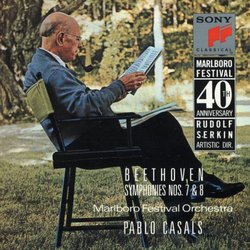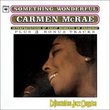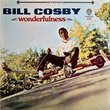| All Artists: Ludwig van Beethoven, Pablo Casals, Marlboro Festival Orchestra Title: Beethoven: Symphonies Nos. 7 & 8 Members Wishing: 0 Total Copies: 0 Label: Sony Release Date: 5/3/1990 Genre: Classical Styles: Historical Periods, Classical (c.1770-1830), Modern, 20th, & 21st Century, Symphonies Number of Discs: 1 SwapaCD Credits: 1 UPC: 074644589320 |
Search - Ludwig van Beethoven, Pablo Casals, Marlboro Festival Orchestra :: Beethoven: Symphonies Nos. 7 & 8
 | Ludwig van Beethoven, Pablo Casals, Marlboro Festival Orchestra Beethoven: Symphonies Nos. 7 & 8 Genre: Classical
|
Larger Image |
CD DetailsSimilarly Requested CDs
|
CD ReviewsBeethoven for the first time Tommy Nielsen | Kolding Denmark | 11/06/1999 (5 out of 5 stars) "Listening to this recording is like discovering well-known music again. The only competetive version of the 7th symhony is Toscanini's old one with the New York Philharmonic (better than the later NBC version) - but the sound is mediocre. Karajan's 7th with the Vienna Symphony is only nearly as good (why didn't he make more recordings with this orchestra with whom he obviously had great affinity?). Casals' 7th has got the best orchestra, the most "urgent" atmosphere as it is a live recording, and the best sound. The real surprise, however, is Casals' account of the 8th symphony, so vivid and brisk as never before. He opts for the same tempi as Gardiner does in his recent DG version. The difference is that Casals has got rhythm as well. Sony, please, release more recordings with this great musicien." Great Conducting and Playing Robert T. Martin | 12/02/2007 (5 out of 5 stars) "It seems this wonderful CD is only available via third party sellers. Despite this I'm compelled to tell anyone who might happen to come across this review that here is an example of what great music making is all about. Maestro Casals leads a festival orchestra of about 50 players in the Seventh and 40 in the Eighth, but what they lack in numbers they more than compensate for in intensity. Every note played here conveys commitment and meaning. Consider, for example, the bass line in the second movement of the Seventh, these people aren't just keeping time but playing like soloists in counterpoint to the upper strings-extraordinary! I can only imagine what playing for a legend must have been like. The sound is not first class but more than good enough. This belongs in every orchestral collection, I hope it becomes more widely available." Beethoven Symphony #8 in F Major - Pablo Casales Bob D'Augustine | Glassboro, NJ | 07/19/2009 (5 out of 5 stars) "This performance is required listening for anyone who is serious about classical music; it is by far the best recording I've ever heard of Beethoven's Eighth Symphony. The opening movement, Allegro vivace e con brio (fast, lively and zesty), truly lives up to the composer's instructions. What makes it stand out is not merely the tempo, which is breathtaking, but the precision and control, which are extraordinary. This performance actually sounds like the product of a single mind, with every note attacked by every instrument at the same instant. At the end of the first phrase of the first movement, there is a tiny pause, after which the orchestra takes up the second phrase of the opening theme, again with absolute precision. To pick up the musical thread after a hesitation of that sort, with such clarity, is simply extraordinary. This is the playing of a fine ensemble that is completely in tune with the musical statement that its conductor is trying to express.
The Marlboro Festival Orchestra is smaller than the major symphony orchestras that are represented on the majority of Beethoven symphony performances; that is a partial explanation for the combination of speed and clarity that Casales is able to bring out. But other performances by small orchestras don't come any closer to this one than the big orchestras with famous conductors do; something rare and special is going on here. It's worth noting that this is a live performance, though the audience is so silent that you might well think they held their breath through the entire work. (This is true on the LP version as well, not simply some trick of digital remastering.) They must have known how very lucky they were to be present at such a moment. The performance of Beethoven's Seventh Symphony on this cd is disappointing by comparison. The fourth movement, Allegro con brio, calls for the same sort of speed and precision that Casales creates in his performance of the first movement of the Eighth. But his performance of the fourth movement of the Seventh is both slower and less precise. To be fair, I've never heard a performance of this movement, either live or on record, that reaches the level of intensity and precision that the music calls for. The challenge of this movement is that you have to start fast, with a 7-note, swooping, legato phrase whose individual notes can easily get lost; and then you have to do it faster during the movement's final measures. Klemperer solves the problem by starting rather slowly; and you really can hear every note. But there isn't a whole lot of the brio that is called for at the beginning of the movement - though he does manage to generate some real excitement in the accelerando at the end. The closest I've heard to a completely satisfying performance on record is one by Bruno Walter from around 1960 that no longer seems to be available. Colin Davis's performance also isn't bad. Carlos Kleiber's much admired performance starts this movement with an extraordinary level of intensity but is surprisingly sloppy, with the 7-note phrase usually sounding like three or four rather blurry ones. (Maybe that's unfair; perhaps it isn't physically possible for a large orchestra to perform this movement at the rapid pace that is desirable without blurring the notes.) The appropriate tempo of the second movement of the Seventh Symphony has been an area of disagreement among conductors for decades. It's marked Allegretto, which loosely translates as somewhat fast. In the 1920's and 30's, Stokowski began playing the movement faster than was traditional - and Klemperer started playing it slower. Both approaches generally sound quite lovely. In fact, in startling contrast to the fourth movement, the second one seems impossible to play unsatisfactorily. Casales votes for the Klemperer approach. His tempos for the third movement are also slow - the slowest I've ever heard. Beethoven's Seventh strikes me as being similar in its structure to the Third, with monumental first and second movements, and lighter, more agile third and fourth movements. For many years, I would sometimes achieve an approximation of what I wanted to hear in the Seventh by playing Klemperer's version of the first and second movements and Walters's version of the third and fourth. (If you're appalled by my lack of reverence for performance integrity - well, I'm not going to apologize. But indulging myself in that sort of thing is rare. The only other example I can think of is Mahler's Fourth Symphony, where I have substituted Klemperer's slow movement for an otherwise all-Szell performance.) It's worth noting that the orchestras on these two performances are actually quite different. First of all, the Eighth was recorded in 1963, while the Seventh was recorded in 1969. More importantly, the orchestra for the performance of the Eighth consisted of 42 players (including 29 string players, only 13 of whom were violinists), while the orchestra for the Seventh consisted of 53 players (with 22 violinists among the 40 string players). For comparison, the typical major symphony orchestra has at least 90 musicians, with 60 or more string players. A smaller orchestra permits greater precision. So it stands to reason that Casales's performance of the Eighth would be better in that respect that his performance of the Seventh. It has occurred to me that the performance solution for Beethoven's Seventh would be to use a full orchestra for the first two movements and then to have half of the string players sit without playing through the last two movements. In any case, all these years later, I'm still waiting to hear a single performance that provides what I believe that Beethoven wanted. " |

 Track Listings (8) - Disc #1
Track Listings (8) - Disc #1




